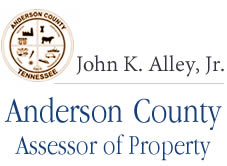Certified Tax Rate
Property tax reappraisal and certified tax rates explained in this short video on "Understanding Tennessee's Certified Tax Rate"
Higher values during a reappraisal do not necessarily mean higher taxes. The law requires the counties and cities to reexamine property tax rates after a reappraisal to make sure higher taxable values do not automatically result in a tax increase. Known as the certified tax rate law or “truth-in-taxation”, the law requires local governments to conduct public hearings before adopting a property tax rate that generates more taxes overall in a reappraisal year than were billed the year before at the previous year’s lower values. If the new tax rate following a revaluation does not exceed the certified rate, the average tax bill may actually remain the same. If the property value increased as the result of the revaluation more than the average, the taxes may be somewhat higher, while if the value increased less than the average, the tax bill may actually be lower in a revaluation year compared to the year before.
Once a certified rate is calculated by the Anderson County Property Assessor, it is then reviewed by the State Board of Equalization, then submitted to the jurisdiction’s governing body for formal determination. If the budget will require an increase above the certified rate, the governing body must publish notice of a public hearing on whether to exceed the certified rate and then may proceed to adopt an actual tax rate after the hearing. If the certified tax rate is exceeded, the jurisdiction must send the State Board of Equalization an affidavit of publication for the hearing notice, and a certified copy of the final tax rate ordinance or resolution.

